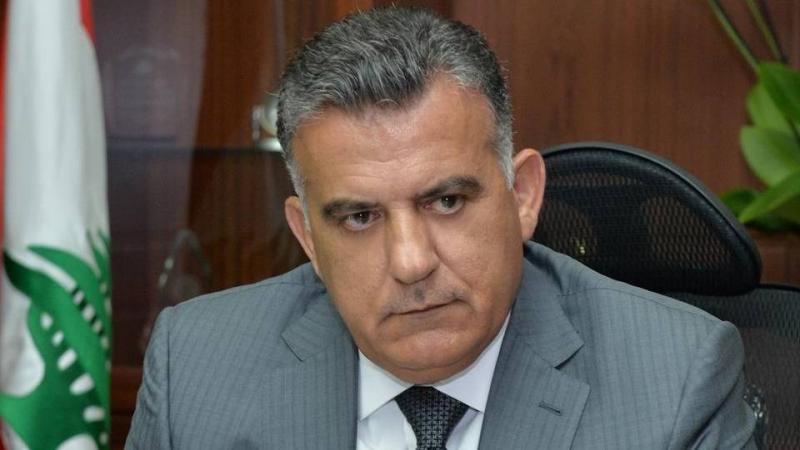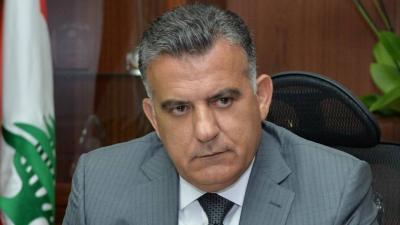He is the “man of difficult missions” whose roles extend beyond the internal level to Arab, regional, and international levels. His imprint is clear and profound in several files, adhering strictly to the law. He has succeeded in addressing major issues where challenges have emerged, having accumulated experience during his service in key centers in the Lebanese army up to the General Security. He consistently places Lebanon's supreme interest as a top priority. He is almost the Minister of State for National Security without a formal appointment decree, with a Lebanese, Arab, and international passport. He has practiced security diplomacy with professionalism and remains actively engaged, preparing for early next year to lead a sweeping presidential landmine-clearance initiative based on his ability to communicate and dialogue with all. He is Major General Abbas Ibrahim, Director General of Lebanese General Security. Below is his interview with "Al-Anbaa," addressing all recent developments:
**At the outset, how do you describe the relationship with Kuwait, especially regarding security cooperation?**
The relationship with the brotherly Kuwait is among the most distinguished relationships between two sister states on all levels. Kuwait has never hesitated to extend a helping hand to Lebanon in all areas, including military and security fields. It has funded modern and advanced equipment placed at the land border crossings, in addition to providing material assistance, and most importantly, is the security cooperation that benefits the security and stability of both countries. This cooperation is at the highest levels, and for that reason, I have made several visits to Kuwait and met with the Kuwaiti security leaders, where we agreed to enhance security cooperation between the two countries. The atmosphere is always positive, even excellent, and we discuss all matters of mutual interest.
**What is your assessment of the general situation in Lebanon in light of the vacancy in the presidency?**
We are in an exceptional situation, and unfortunately, this issue has recurred since the Taif Agreement was reached for the third time, indicating a malfunction somewhere, either related to the application of the constitution or disputes over the application of that constitution or both. The imminent danger we are experiencing is that this vacancy comes in light of an unprecedented economic, financial, social, and living situation, with the natural functioning of many state administrations disrupted except for the military and security institutions, which strive to maintain an acceptable and reasonable level of the elements that keep them ready to perform their duties of preserving stability and public peace and preventing a slide into chaos. Therefore, it is unacceptable to persist under this situation that contradicts the natural course of states organized under the umbrella of the constitution and law.
**Do you see a near possibility of electing a President of the Republic, and is the obstacle internal, external, or both?**
The possibility always exists, provided there is a collective national will, through which the Lebanese can prove their capacity to manage their affairs without any need for external intervention, whether by voluntary summons for that intervention or by inability to fulfill the natural duty of ensuring the regular functioning of public life by avoiding any vacancies in any constitutional position. The matter of ending the confusion surrounding the presidential file is in the hands of the political forces represented in the Parliament. Therefore, I see that the obstacle is predominantly internal, while external influence is a result of the confusion within as to which presidential option they should pursue, as this option is the key to restoring matters to normalcy with brotherly and friendly states, which Lebanon needs to open up to in order to help it secure the support needed to overcome its grave crisis and begin a phase of recovery and revival.
**Does dialogue lead to a breakthrough in the presidential file?**
Whatever the goal of dialogue is, it is a duty, necessity, and need. Dialogue breaks the ice among competing forces and brings distances closer. Speaker Nabih Berri’s call for dialogue is timely and well-placed, and based on President Berri’s long experience in Lebanese national life, I believe he is capable of finding common ground and achieving a desired outcome culminating in the election of a president of the republic as soon as possible.
**Are you concerned about repercussions affecting security stability and public peace if the presidential vacancy persists?**
I believe there is no security stability without two complementary conditions: political stability and economic stability. Political instability is due to rampant disagreements within the Lebanese interior and mutual hostilities among political parties. Here, it is essential to complete the institutions of the constitution because a body without a head is destined for death. If there is no President of the Republic, things will head towards the worse, and the security sector is the most affected, and the escalation of conditions will sooner or later lead to social explosions. Therefore, it is imperative to address the situation with intensive and serious actions in all directions.
**You have played crucial roles in sensitive files. Are you active in completing the presidential election?**
Throughout my career, I have relied on the narration attributed to the Prophet Muhammad (peace be upon him): “Seek assistance for your needs with secrecy, for every possessor of blessing is envied.” Based on experience, every task, file, or effort that I surrounded with secrecy has led to success. Therefore, whether I am playing a role or not, I am excused for not disclosing or stating the true nature of what I aim to achieve.
**What about the new developments concerning the Syrian refugee issue?**
First, I reiterate the denial of all allegations, rumors, and lies claiming that any of the returning Syrian refugees have been imprisoned or harassed. The United Nations High Commissioner for Refugees (UNHCR) has verified this by meeting with some returnees in Syria. Unfortunately, some online platforms have repeatedly published misleading information aimed at scaring Syrians from returning for various personal or political reasons, as many benefit financially from the plight of displacement or are politically tied to the regional and international struggle over how to approach a political solution in Syria. The more dangerous aspect is the desire of some to keep the Syrian situation as it is, with ongoing bleeding and instability, to weaken Syria and prevent it from playing its natural role within the unified Arab framework. However, I have noticed a positive shift in the positions of some European Mediterranean countries regarding the Syrian refugee file and the necessity of their return to their country. Lebanon is working to find a solution regarding the births of Syrian refugees, fearing that they will become "stateless" and potentially gain Lebanese citizenship in the future. Minister of Social Affairs Hector Hajjar is addressing this file with the Syrian embassy in Lebanon.
**The announcement about the extent of Israeli infiltration into the Lebanese arena raises concerns. What do you attribute the cause to?**
The Israeli enemy always places Lebanon as a primary and central target for its endeavors. Lebanese military and security institutions prioritize countering the threat of Israeli infiltration and terrorist groups, and uncovering networks or individuals working for Mossad is not new. Unfortunately, the enemy has increased its recruitment activities, exploiting the current economic and social crisis in Lebanon and the need of the youth for job opportunities. It focuses its penetration efforts on this aspect under the guise of providing job opportunities to ensnare Lebanese youth. We are making exceptional efforts and gradually revealing individuals and networks working for the enemy, but not everything we uncover will be publicly announced.
**The economic, financial, and living situation has impacted all state institutions and administrations. How do you face this challenge at the General Directorate of General Security?**
The General Directorate of General Security is striving to secure social and health assistance to mitigate the effects of difficulties, maintaining benefits and covering as much as possible of the differences in drug and medical costs, and providing exceptional assistance to ensure nearly an extra salary for every security personnel each month, regardless of their rank. The leadership in General Security continues to adopt exceptional service measures, in addition to promoting deserving personnel within the legally specified timeframes. Diligence in exerting effort and making sacrifices to implement the law are the only solid and substantial steps to confront these harsh and difficult conditions. The General Directorate is experiencing the suffering that threatens living, having already affected social, health, and educational stability. What has affected the Lebanese people has affected us and other official institutions, for we are part of this people, and we must unite and endure, and the alternative is accepting the collapse of everything. If security is lost, then nothing of the state and its institutions will remain. Hence, we are compelled to confront this challenge, and that is a commitment we all made.
**When will the passport crisis be resolved, and is the cause financial, or is the rationing meant to limit migration?**
There is no passport crisis, but rather a crisis stemming from the increase in passport requests, while affirming that every Lebanese has the right to obtain a passport. Starting in 2023, we will receive 100,000 biometric passports, eventually totaling one million passports within six months. It should be noted that we currently have about 22,000 unclaimed passports in our stores, and 69% of those who have obtained passports have not used them. Lebanese are rushing to procure passports even though they do not intend to use them. We hope that things will return to normal in the early months of the coming year.
**The vacancy threatens sensitive positions in the Lebanese state, including General Security. Is there a move towards making proactive and exceptional decisions to prevent vacancy and ensure the continuity of public service?**
This matter is up to the political authority, which is monitoring the situation to prevent any disruption within military and security institutions. As for General Security, we adhere to what the political authority, represented by the Parliament and Cabinet, decides.




